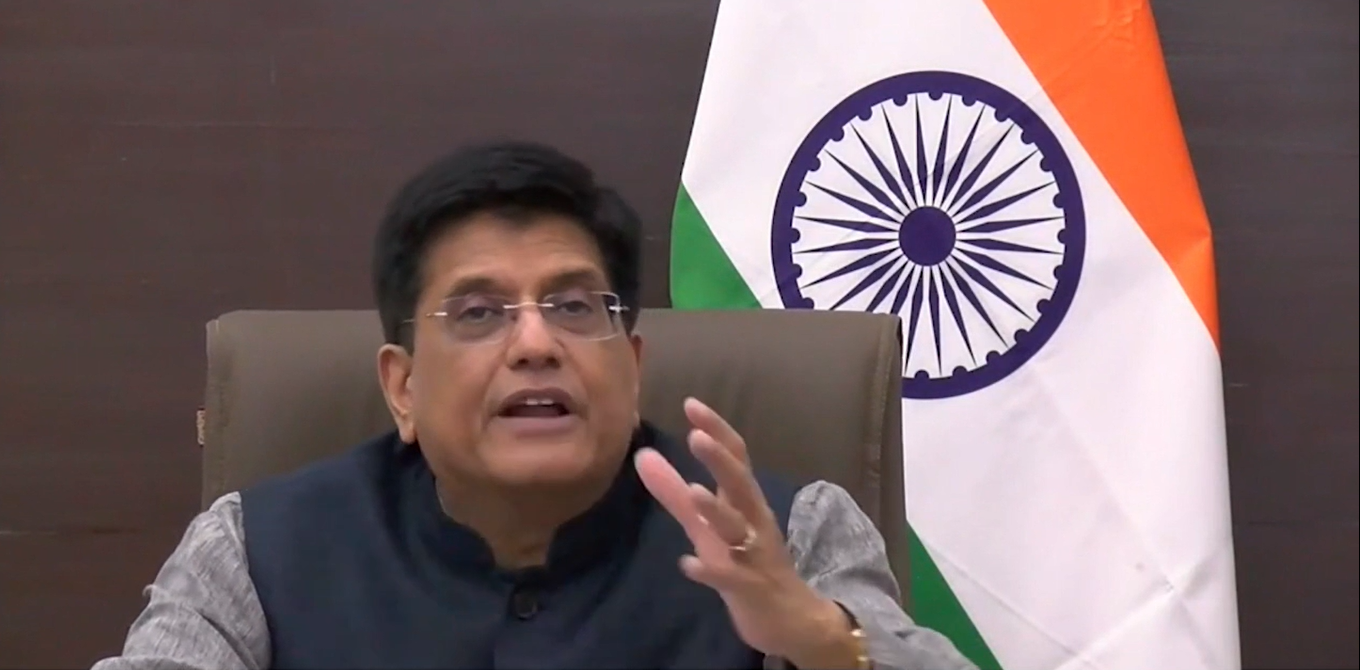
Addressing the who’s who of India’s automobile industry at ETAuto EV Conclave 2022, Union Minister for commerce and industry, textiles, consumer affairs, food and public distribution, Piyush Goyal on Tuesday made an emphatic pitch for electric vehicles that are ushering in “a golden era of mobility system in India” by dismantling the high entry barriers in the traditional automotive ecosystem.
In the extempore speech delivered in his trademark candour, Goyal sought to dispel a number of notions surrounding the new technology underlining that EVs suffer not from a demand problem but supply side issues.
“I personally believe electric vehicles do not have a demand side problem today. It is a supply challenge that we all have to work on. Consumers are ready. They want more options,” he said as the chief guest of the two day conclave. “Traditionally, this sector has had high entry barriers, but the world is changing. It may now be the golden era of electric vehicle mobility ecosystem that is coming out of the shadows of big brands. And we now see more democratisation of the sector with a lot many companies, startups and new technologies taking centre stage.”
The minister highlighted the strong momentum that electric mobility has gained in India over the last few years on the back of progressive government policies like FAME 2 and PLI scheme and added that smaller towns have taken the lead in the adoption proving how technology can be a formidable agent of change.
“Mobility is clearly critical to preserving our planet and climate change having taken centre stage, it is very obvious that mobility should become an important issue of discussion. In fact, mobility is the next frontier in our fight against climate change,” he said. “Electric vehicles have the potential to reduce our dependence on oil imports, conserve precious foreign exchange, enhance the energy security of India, reduce carbon dioxide emissions, thereby bringing down air pollution and taking India to the next level of self reliance.”
“Our tier two and tier three cities in fact, have outpaced the big cities, the metropolitan cities in adopting electric vehicles. It justifies the old idiom that technology is a great leveller,” he added. “Electric vehicles will help us in improving the lives of the people in the tier two tier three cities and smaller towns, and hopefully, will help us expand this ecosystem much faster across the length and breadth of India.”
The electric mobility story in India has garnered immense momentum in the last few years with sales now projected to double every year. But there are challenges and the minister delved into a few of them reminding the industry that the growth has come on a low base.
“We are today at the cusp of a revolution in electric mobility worldwide. But we must bear in mind that the positive growth over the last five years in electric mobility in India has come on a very low base. We now have to look at transformational growth in this sector, and really see how the adoption can become faster, more cost effective and how our cars can be charged, if possible at home,” he said. “Also how our heavy vehicles can take in electric battery charging. Of course this means breaking down the weight of the batteries, making them more efficient to enable them to run for hours and over longer distances.”
For this transformational growth, Goyal also stipulated a three pronged strategy to make India a global powerhouse in electric vehicles.
“We need to make our electric vehicle manufacturing sector globally competitive by leveraging low cost manufacturing base and inviting technology to come and manufacture in India. They must try to grab a dominant share of the global electric vehicle market globally,” he said. “We must also look at developing sustainable solutions built upon indigenious technology as per Indian conditions, such as contrasting weather conditions and the Indian roads. And there must be awareness about electric vehicles to bust the myths that are often sought spread.”
“In electric vehicles the running and maintenance costs are lower, our emissions reduced significantly thereby protecting the planet. There are tax and financial benefits. They are easier to drive, are much quieter, and in most cases can be very conveniently charged at home. When India transforms, it benefits nearly a fifth of mankind. Let us build a template in mobility for the world to adopt.”
Also Read:














